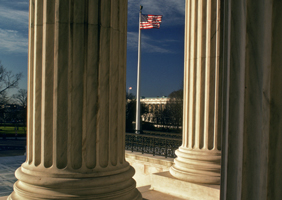Newsroom
NAFCU, trades advise against removing arbitration protections
 NAFCU joined with several other trade associations spanning various industries this week to urge lawmakers to oppose legislation that could hurt consumers, small businesses, and employees by removing arbitration provisions in private contracts.
NAFCU joined with several other trade associations spanning various industries this week to urge lawmakers to oppose legislation that could hurt consumers, small businesses, and employees by removing arbitration provisions in private contracts.
"Federal law has protected arbitration as a means of resolving disputes between businesses, consumers and employees since 1925," the groups wrote. "Should [H.R. 963 and S. 505] become law, these bills will not benefit claimants and will instead produce more class action lawsuits that will benefit the lawyers who bring them."
The groups highlighted that in cases of arbitration, "courts work to ensure that arbitration agreements of all types are fair and do not provide an advantage to any party."
"The only clear beneficiaries of eliminating arbitration clauses are class action lawyers who would directly benefit from increased class action litigation replacing cost-effective and fair arbitration as a viable way to resolve disputes," they wrote. "Studies have shown that class action settlements frequently provide, at best, a very low return to class members while class action attorneys take in millions of dollars.
"Their gain would come at the expense of consumers, small businesses and employees, many of whom are not even eligible to participate in class action litigation. And because their claims are too small to attract individual legal representation, they would be left without a remedy altogether if arbitration were eliminated," the groups concluded.
NAFCU has consistently flagged that removing arbitration options would have unintended consequences and limit consumers' ability to remedy disputes. The association actively advocated against the CFPB's arbitration rule, which was overturned by the Congressional Review Act in 2017. NAFCU was the only credit union trade group in attendance when President Donald Trump signed the congressional joint resolution to overturn the rule in November 2017.
Share This
Related Resources
CFPB Continues to Focus on Fees
Accounts
Blog Post
An Overview of the Reasonable Cause to Doubt Collectibility Exception under Regulation CC
Accounts
Blog Post
CFPB Limits Creative Control with Closed Accounts
Accounts Examination & Enforcement
Blog Post
Get daily updates.
Subscribe to NAFCU today.
